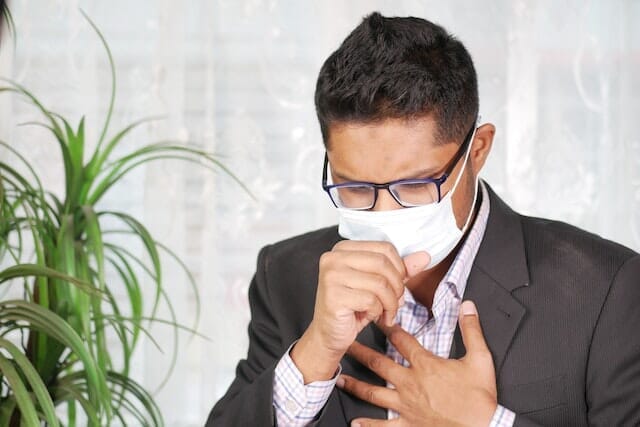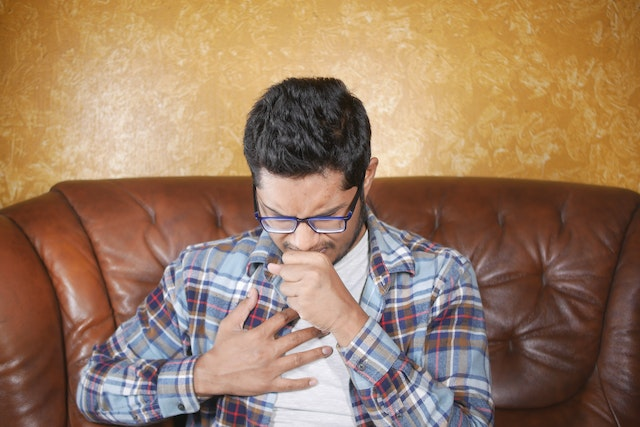
A Simple Guide on How to Treat Omicron At Home
Time to read 6 min
Time to read 6 min
When you have Omicron symptoms and need to take care of them at home, there are simple instructions you can follow to ensure timely recovery. We're always looking for the best ways on how to treat Omicron at home, when we or our loved ones have the virus. There are direct ways through which we can manage the symptoms.
It is also important to understand the differences between COVID 19 and Omicron as well. If you have the symptoms of COVID 19, in the event that you are unvaccinated, then you will require different treatment. Over the counter medication, tracking with a pulse oximeter, and other methods may not be as effective.
Of the several symptoms of Omicron, the most important one to get checked up is extended fevers. To be completely sure, you should get tested for COVID 19 and Omicron if you are having severe fevers that border on more than 3 days.
An Omicron test can help in knowing whether you have a significant viral load as well. A test can be the best way to know if you have the virus or whether your symptoms are related to a common cold. That's why testing for Omicron is highly recommended when you first start experiencing the preliminary symptoms.
One of the best ways to treat Omicron at home is to ensure that your symptoms don't escalate. This means tracking your symptoms from the point of inception. If you have a running nose, cough, throat irritation, wheezing sensation, or fever, you need to manage it effectively.
Your symptoms can also decrease or increase in severity throughout the Omicron viral period. This means that you need to be careful about your symptoms severity. You shouldn't take a running nose or wheezing for granted as it can impact your sleep and recovery from illness.
You should also focus on consulting with your doctor about the right medication for Omicron symptoms. Regardless of the severity, viral load, or your symptoms, you should start medication as directed by your specialist.
Taking the right supplements and medicines to treat your symptoms should help in easing the transition towards Omicron negative status. You can take painkillers and cold medicine, if you find that they are helping in relieving your symptoms.
You can ensure that your breathing isn't impacted significantly with the onset of the virus. You can continue to track your blood oxygen levels, especially if you are a smoker or have prior breathing issues. You can also track your breathing ability over a week long period.
You should also track oxygen levels when someone is ageing, as Omicron may have a more severe effect on senior citizens if they have secondary conditions. You can procure the right breathing equipment if their oxygen levels are lower than optimal.
In the case of Omicron, your symptoms can escalate with new symptoms arising. You can experience wheezing, sneezing, body aches, and chills after several days as well. This can cause confusion when managing the virus, as you may think that you are fine one day and sick another.
The only way to be absolutely sure whether you have the virus or not, is to get multiple tests performed. You can buy an Omicron test in India through MyDiagnostics and get accurate information about your Omicron status.
One of the most important aspects of managing Omicron at home is to ensure that there is minimal impact on any chronic condition you may be managing. Your risk of condition escalation rises when you are dealing with Omicron and COVID.
That's why it is important to consult with your specialist about the potential impact of Omicron on your chronic condition. Whether you are managing diabetes or cancer, your risk factor rises when you have Omicron.
Doctors can provide the right insights on your specific chronic condition so that you can manage it easily as you recover. Symptoms escalation, such as difficulty breathing, fevers, and body ache, can potentially increase your risk of arthritis, COPD, etc.
With COVID and Omicron, your risk of severity depends if you have the following chronic conditions.
1) Cancer
2) Diabetes
3) Kidney disease
4) COPD
5) Obesity
6) HIV
7) Mental health disorders
8) Tuberculosis
9) Heart disease
10) Arthritis
It is also important to visit a hospital when your symptoms are unmanageable. Fevers that are bordering in the dangerous zone, shouldn't be taken lightly. You should take the right measures and get treated for your fever symptoms.
Similarly when you are experiencing issues with breathing, such as low oxygen levels or lack of breathing ability, then you should consult with a specialist. You shouldn't restrict yourself to at-home treatment, and should seek medication when your symptoms are out of control levels.
You should visit the hospital wearing a mask and should inform your doctor if you have Omicron. A quick test can also be performed at the hospital for confirmation, after which you can be given the right treatment and medication.
You can also consult with a doctor prior to at-home quarantining, about the best ways on how to manage the condition. This can help you lower symptom severity and provide the right care needed for recovery.
You should also be transparent about your Omicron status when visiting a hospital, so that your doctor can be made aware of your current symptoms. You can appoint a family member to be present during your stay, who knows your medical history as well.
These are the major symptoms that you should watch out for, especially when dealing with Omicron for more than a week. By understanding what symptoms should be tracked, you can improve your health outcomes significantly and lower the risk of hospitalization.
A constantly running nose can be a preliminary sign of Omicron. You can also expect your immune system to be stressed, which can cause sneezing fits and irritability as well. You need to track your running nose and check for anomalies in terms of colours and textures.
You should get an Omicron test done if you suspect that your running nose started a few days after a potential infection event. This can help you know with certainty whether you need to get treated for Omicron as well.
If you are experiencing body pain that is severe and intense, then you may have the virus. This is an alarming sign, especially if you generally don't get fevers under normal infections. You should get tested immediately for Omicron through an at-home Omicron test.
If you have a fever that is lasting for more than 3 days, then you should consult with a doctor about Omicron. You can get an Omicron test done to check if you have the virus, and begin taking the right precautionary measures.
Wheezing and difficulty breathing should be taken seriously, especially when it happens throughout the day for multiple days. This is a serious symptom of Omicron and should be verified with an Omicron test.
Muscle aches that are critically painful, leaving you bedridden for sometime, should be taken seriously. You can take a painkiller to help relieve the symptom, but you should also get an Omicron test done for precaution.
A sore throat is one of the most common signs of the virus, but can be easily misdiagnosed as a common flu. You should get a test for Omicron done when you suspect that your sore throat is worsening, with difficulty swallowing.
* Medical Disclaimer - The following information is for educational purposes only. No information provided on this website, including text, graphic, and images, are intended as substitutes for professional medical advice. Please consult with your doctor about specific medical advice pertaining to your condition(s).

